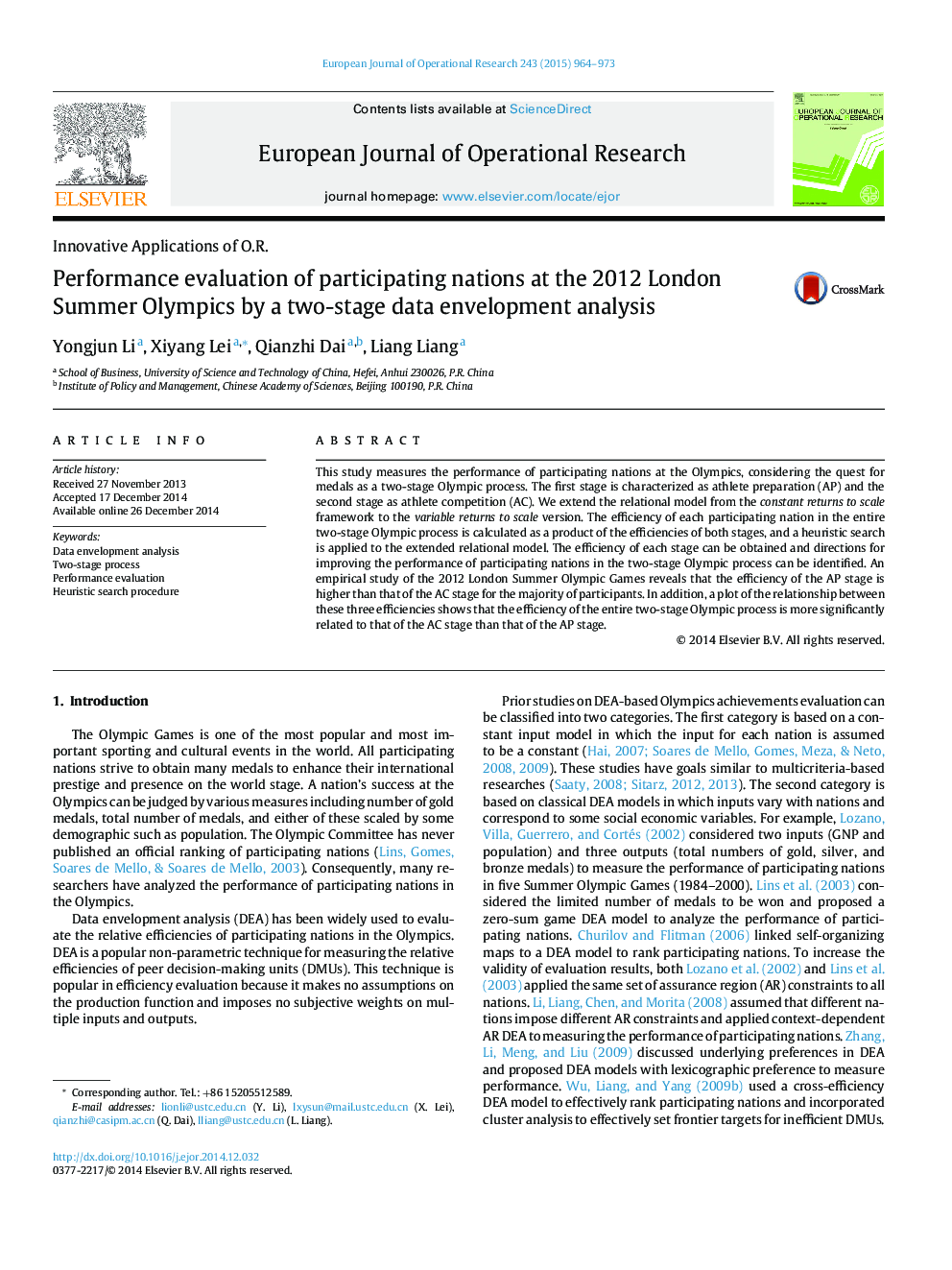| Article ID | Journal | Published Year | Pages | File Type |
|---|---|---|---|---|
| 478064 | European Journal of Operational Research | 2015 | 10 Pages |
•We firstly assess the performance of participants in a two-stage Olympic process.•We extend the relational model (Kao & Hwang, 2008) to the VRS version.•A heuristic search procedure is applied to the non-linear extended model.•We prove that the efficiency for the entire two-stage Olympic process is unique.
This study measures the performance of participating nations at the Olympics, considering the quest for medals as a two-stage Olympic process. The first stage is characterized as athlete preparation (AP) and the second stage as athlete competition (AC). We extend the relational model from the constant returns to scale framework to the variable returns to scale version. The efficiency of each participating nation in the entire two-stage Olympic process is calculated as a product of the efficiencies of both stages, and a heuristic search is applied to the extended relational model. The efficiency of each stage can be obtained and directions for improving the performance of participating nations in the two-stage Olympic process can be identified. An empirical study of the 2012 London Summer Olympic Games reveals that the efficiency of the AP stage is higher than that of the AC stage for the majority of participants. In addition, a plot of the relationship between these three efficiencies shows that the efficiency of the entire two-stage Olympic process is more significantly related to that of the AC stage than that of the AP stage.
